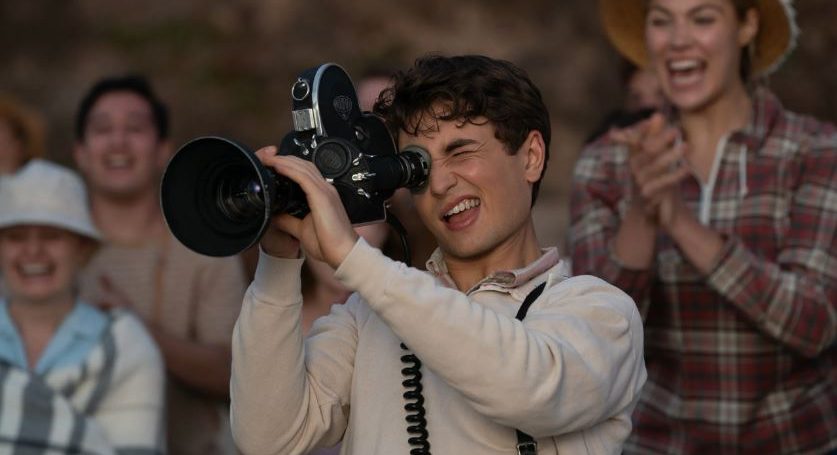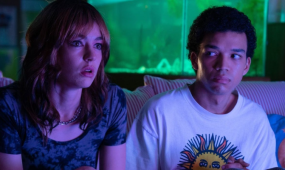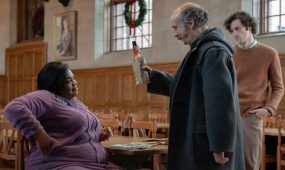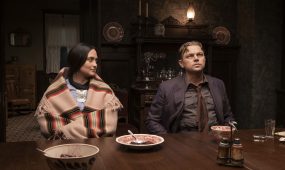The Fabelmans
Films & TV
“Amidst much talk about vocation in the Church, director Steven Spielberg has created a thoroughly entertaining and multi-layered meditation on the subject that never fails to enthral,” says Jonathan Sargeant from St Francis College

Amidst much talk about vocation in the Church, director Steven Spielberg has created a thoroughly entertaining and multi-layered meditation on the subject that never fails to enthral.
Memory is a tricky thing. For instance, the same series of events can be remembered differently by different people. Hence a film like Akira Kurosawa’s incredible Rashomon (1950) in which we see the same series of tragic events from the perspectives of different agents within the story. For individuals, memory can also be tricky. Events of the past may take on different shapes as we grow older. Sometimes these memories become sweeter as we edit out the unpleasant. Sometimes we may remember more as we gain the maturity to understand better the players in our pasts. Steven Spielberg’s The Fabelmans treads a nuanced line between these two polarities in painting the past of his childhood and youth in this award-winning coming-of-age drama.
In telling one’s life story, a focus is needed. To use the cinematic metaphor, one must place the camera somewhere! It comes as no surprise that the film’s opening scene involves young Sammy Fabelmans’ (Mateo Zoryon Francis-DeFord) first visit to the cinema. After a careful parental briefing, The Greatest Show on Earth (1952) is playing and a particular scene catches the child’s eye: the spectacular train crash. In that moment, Sammy is transformed; a life path, a vocation takes form.
Using the family camera he recreates the scene with his toys. His supportive parents (Michelle Williams and Paul Dano) think he is working through the trauma of the crash, but for young Sammy something else is going on. From there we see family life as only Spielberg can capture it, a web of messy, funny, shifting relationships. We see the creation of various short films he makes for scout badges, school purposes and the like. Into his teenage years, his eye develops, and a distinctive visual dexterity grows as the amateur films become larger in scale. Home movies begin to reveal the truth of events he didn’t notice in the moment. Another aspect of memory and the nature of filmmaking is explored. Family secrets are uncovered, and Sammy must grow in his understanding of his family members, putting childish things behind him.
Advertisement
In The Fabelmans, Spielberg has produced a lovely return to form after some less than stellar films in the last decade or so. With a script co-written by Tony Kushner, every actor has room to move, with lovely moments for everyone. Michelle Williams is amazing in a tour-de-force role that will be remembered for a long time. Paul Dano plays her perfect foil in restrained moments that belie another way to process turmoil. Bringing immense depth, teenage Sammy, Gabriel LaBelle is also a lynchpin.
The script makes space for some excellent cameos, notably from Judd Hirsch as Uncle Boris, who teaches Sammy about the nature of art, pain and family in an astonishing monologue. Another cameo rounds off the film and is worth the price of admission alone. Since most of us have seen at least a few of Spielberg’s films, there’s an extra thrill in noticing the moments in the filmmaker’s life that provided inspiration for scenes in films, such as Jaws, E.T., Saving Private Ryan and Schindler’s List, just to name a few. Beyond that “nerdiness” there is a nuanced picture of the development of his art and how being an onlooker who captures observations means always thinking about camera angles. The flash when Sammy realises this newly acquired habit kicks in even during moments of intense loss is startling.
Advertisement
In telling the story of one’s life there is always the danger of creating an indulgent self-mythology that serves ego rather than truth. But in musing on the nature of memory, Spielberg has avoided that flawed method, instead connecting with some very human experiences that will resonate with many.
This film is “Spielbergian” in every sense. It’s honest, emotional, insightful, visually dramatic storytelling with luminous performances (from Williams especially!). It unpacks vocation as both obsession and life-giving nourishment, the light side of us and the shadow, capable of exposing truth and erupting joy in our lives as we struggle, frolic and inch our ways into our futures. There will never be a part two, you’d imagine, but what I wouldn’t give for one.
The Fabelmans, rated M and directed by Steven Spielberg, is currently showing in cinemas. Watch the trailer on YouTube.
Editor’s note: Interested in learning more about film, the Arts, and the many intersections with life and faith? Jonathan Sargeant teaches ‘DA213 – God in Contemporary Culture: Theology and the Arts’ at St Francis College. Contact Sheilagh, the College Registrar, on 07 5514 7403 or via sheilagh.obrien@anglicanchurchsq.org.au for more information.






